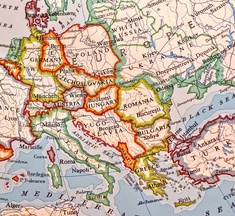
Capital City Origins ~ Europe Part 3
First published: Tuesday November 16th, 2021
Report this blog
- Introduction.
- Budapest. Hungary.
- Bucharest. Romania.
- Chisinau. Moldova.
- Kiev. Ukraine.
- Ljubljana. Slovenia.
- Zagreb. Croatia.
- Belgrade. Serbia.
- Sarajevo. Bosnia and Herzegovina.
- Podgorica. Montenegro.
- Pristina. Kosovo.
- Skopje. North Macedonia.
- Tirana. Albania.
- Sofia. Bulgaria.
- Athens. Greece.
- Valletta. Malta.
- Summary.
Introduction.
Anyway enough of the chit chat, let's get onto our first capital in Part 3.........
Budapest. Hungary.

Hungary's capital was originally 3 towns, Buda, Pest and Obuda. They were unified and given the name Budapest in 1873. Poor old Obuda missed out, but I suppose Budaobudapest doesnt sound quite right.
Anyway to get to the meanings we have to look at the names seperately.
Buda probably comes from the name of the first guardian of the 11th century castle. Although some sources state that it comes from the city's founder, Bleda, who was none other than the brother of Attila.(Yeah, that one.)
Pest is most likely to come from the Slavic word for cave, Pestura .
BUDAPEST = BLEDA'S CAVE (Although actually it's just an amalgamation of two cities names)
Bucharest. Romania.
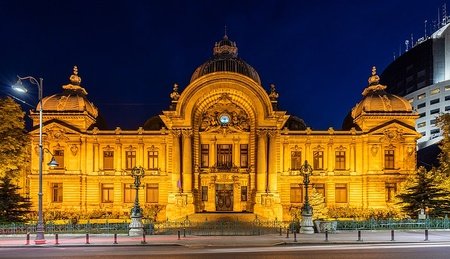
Traditionaly the name Bucharest, or in local parlance Bucuresti, is thought to derive from the name of the founder Bucur, who was a prince, an outlaw, a fisherman, a shepherd or a hunter depending on who you ask.
However in Romanian the word bucurie means joy or happiness and some historians have agreed with this derivation.
BUCHAREST = CITY OF JOY
Chisinau. Moldova.
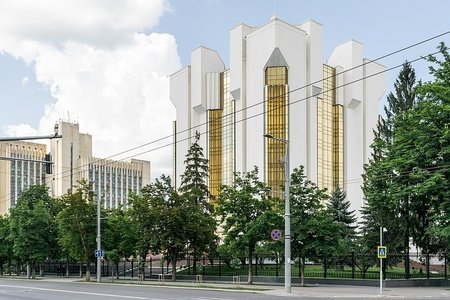
There are a couple of theories as to the origin of Chisinau, one relates to a tribe known as the Jeno. There are several towns and villages in Romania and Hungary with the same connection.
However the main theory is that the name derives from the archaic Romanian words Chisla meaning "spring" (water) and noua meaning "new". The city was built around a small spring.
CHISINAU = NEW SPRING
Kiev. Ukraine.
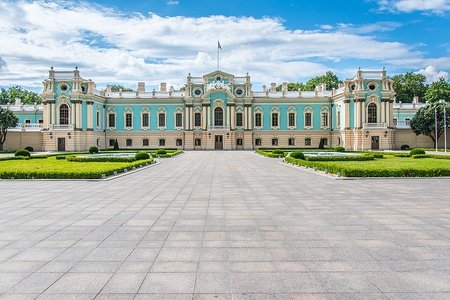
Kiev, or Kyiv as it's known locally, takes it's name from the Old East Slavic word Kyjevu. This is probably derived from the Proto-Slavic name Kyjevu Gordu which translated literally means "Kyi's Castle". Kyi is the legendary founder of the city.
So, basically Kiev is just an English version of Kyiv which is just some guy's name.
KIEV = KYI (although Kevin seems like an ideal variant, can we add that as a type-in on all capital city quizzes please Mr. Quizmaster ?)
Ljubljana. Slovenia.
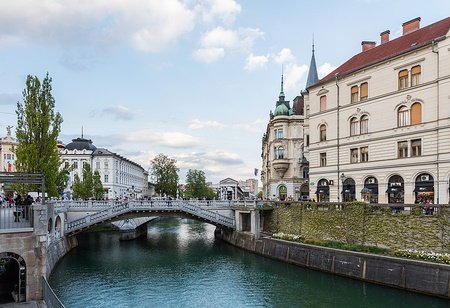
Although the origin is not clear, it is thought that the first part of the name comes from the Slavic word Ljub meaning "love" and that the town takes it name from the earlier name for the river, the Ljublia which takes its name from an Old Slavic personal name, Ljubovid meaning "of lovely appearance"
LJUBLJANA = LOVELY CITY
Zagreb. Croatia.
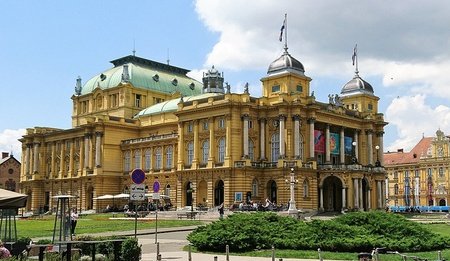
Croatia's capital can trace it's roots back to Roman times when it is thought to have been called Agram. But we are more concerned with it's modern name.
Zagreb has been spelt a number of ways over the years but the most realistic derivation is from the Proto-Slavic za breg meaning "toward the hill", in other words "near to a hill".
Folklore however has a much more comedic etymology of the name. From the verb "to scoop" or "to grab" za greb.
The story is that a city governor is thirsty and orders a local girl named Manda to scoop water from a well, shouting "Zagrabi, Mando!" (Scoop, Manda!). As much as a like this explanation, the origin is probably the boring one.
ZAGREB = NEAR A HILL
Belgrade. Serbia.
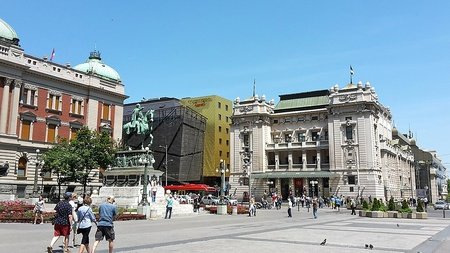
People have settled in the area of Belgrade (or Beograd, as its known in the Serbian language) for around 20,000 years. It is oneof the oldest continually inhabited cities in Europe.
The name is similar to many in Eastern Europe in that it ends in grad which means "city". This is preceded by Beo or Bel meaning "white".
BELGRADE = WHITE CITY
Sarajevo. Bosnia and Herzegovina.
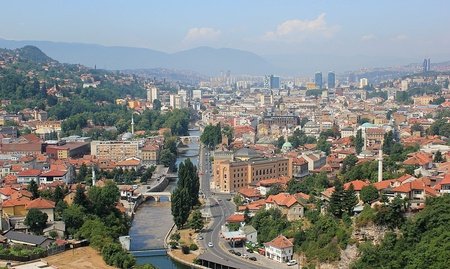
Sarajevo has had several nicknames over the years including "Damascus of the North" and European Jerusalem", the latter being the most popular. However this blog is about city names not nicknames so....
The "Saraj" part of the name comes from the Turkish or Persian word saray meaning "palace" or "mansion". The "evo" part comes from the Slavic and indicates a possessive noun. The generally accepted etymology is.....
SARAJEVO = CITY OF THE PALACE
Podgorica. Montenegro.
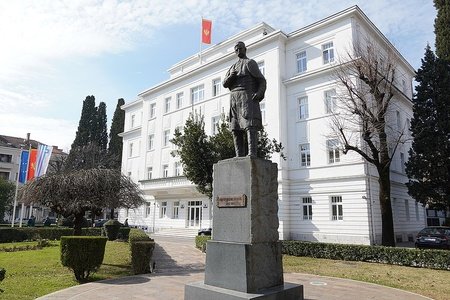
Formerly known as Titograd (City of Tito), Podgorica reverted to it's original name after the fall of Yugoslavia.
The name, like Sarajevo, can be split into two parts, Pod and Gorica. Pod means "area below" and "Gorica" is the name of a hill that overloks the city centre. However Gorica actually means "little hill" so put simply .....
PODGORICA = AREA UNDER THE LITTLE HILL
Pristina. Kosovo.
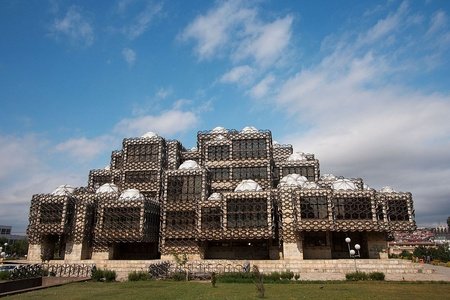
There are a few theories as to the origin of this city's name. One is particularly derogative and is discounted by many scholars, the reason being it comes from the Serbian word for "Tumor" or "Ulcer". Another theory is that it is the name of an unknown person from antiquity.
However the most likely etymology is that Pristina derives from the Proto-Slavic word pryscina meaning "spring of water".
PRISTINA = SPRING OF WATER
Skopje. North Macedonia.
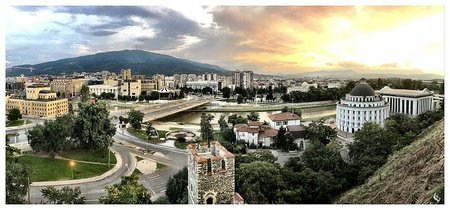
The name of the city has gone through many changes and spellings over the years, but the generally accepted origin is from the city name of Scupi that was the name of an early Paeonian settlement around 2,500 years ago.
The origin of the name Scupi itself isn't known, but one theory is that it means "watcher" or "observer" in Greek refering to the city's position on high ground. That seems reasonable enough, so.....
SKOPJE = PLACE OF THE OBSERVER
Tirana. Albania.
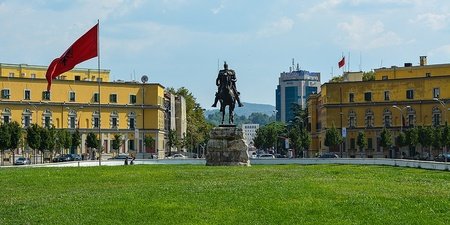
There are several hypotheses for the origin of the name Tirana. The two main theories are that it either comes from the name of a fortress that was situated on a nearby hill, Tirkan, although origin of this name is unknown. Or the other theory is it derives from the Old Greek word Tyros meaning "dairy". It is well known that dairy products were traded for many centuries by shepherds in the area around Tirana.
I like the idea that it was named after a dairy product, although the truth is probably the fortress, or another as yet unknown origin.
TIRANA = DAIRY or FORTRESS (you can decide)
Sofia. Bulgaria.
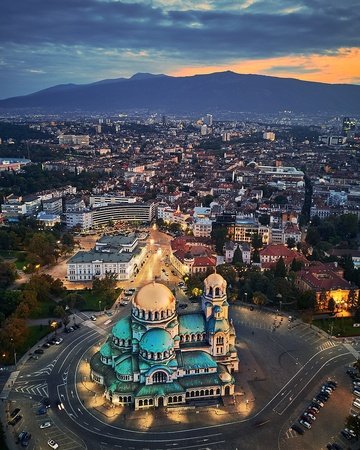
The name Sofia sounds like a girl's name. There is a reason for this. The name originates from the Saint Sofia Church. The name Sofia in turn is derived from the Greek word sophia which means "wisdom".
That's it. Simple one that doesn't need much elaboration.
SOFIA = WISDOM
Athens. Greece.
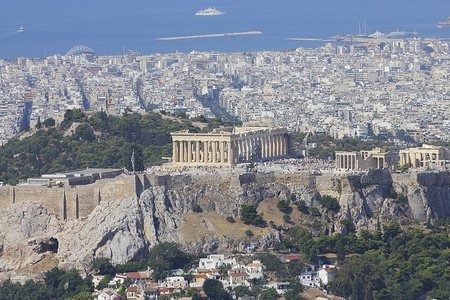
It used to be thought that Athens took it's name from the Greek goddess of wisdom, Athena. Most scholars agree however, that the truth was probably the other way round, that Athena took her name from the city. Inhabited for at least five millenia, there are several theories as to the origin of the name. They range from "flower" to "glorious city" to "fertile land".
However the most widely accepted possibility is that it is derived from Attica the region of the Attic tribes in ancient times.
ATHENS = HOME OF THE ATTIC TRIBE
Valletta. Malta.
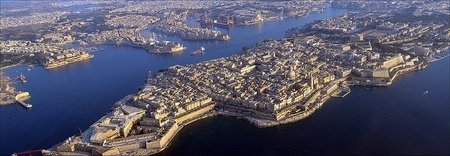
Valletta takes it's name from a person. Jean Parisot de Valette. He was a French nobleman and a Knight Hospitaller that defended the island of Malta from an invasion by forces of the Ottoman Empire. He personally laid the first foundation stone of the new city following the Grand Siege of Malta.
Valette is, according to a baby name website derived from the name Valeria, not much help really.
VALLETTA = CITY OF JEAN PARISOT DE VALETTE (Sorry, best I could come up with)
Summary.
So there you go. European capital city etymologies in three parts. 45 cities. Next up ....AFRICA. I decided to head south into the deserts and savannahs of the African continent. The main reason for this is that my knowledge is lacking in this area and I find it a little daunting to be honest, but hey, it's good to get out of ones comfort zone occasionally. Africa!. 54 countries but 56 capitals (I think) .
Just checked and it's 57 ! Eswatini decided to have 2 capitals and South Africa decided to have THREE, yes,Three capital cities. No need for it really, all that travelling for politicians on expense accounts.
So anyway, Thanks for reading these blogs, and commenting if you did. It is appreciated that you take the time out of your busy schedules. I hope you learnt something interesting.
I'm off now to catch the ferry from Malta to Egypt. See you soon!
Oh, almost forgot...EUROPE = BROAD OF ASPECT or WIDE GAZING from the Ancient Greek

There :)
"Well, it's near a hill... how about 'near a hill'?"
"Sir... you're a genius."
song about it !
Although the name was lengthened to this during Victorian times to boost tourism.
Most locals call it Llanfair PG
Hope this helps !
I'm looking forward to Africa, and seeing where all the Ouagadougou's and Antananarivo's come from :)